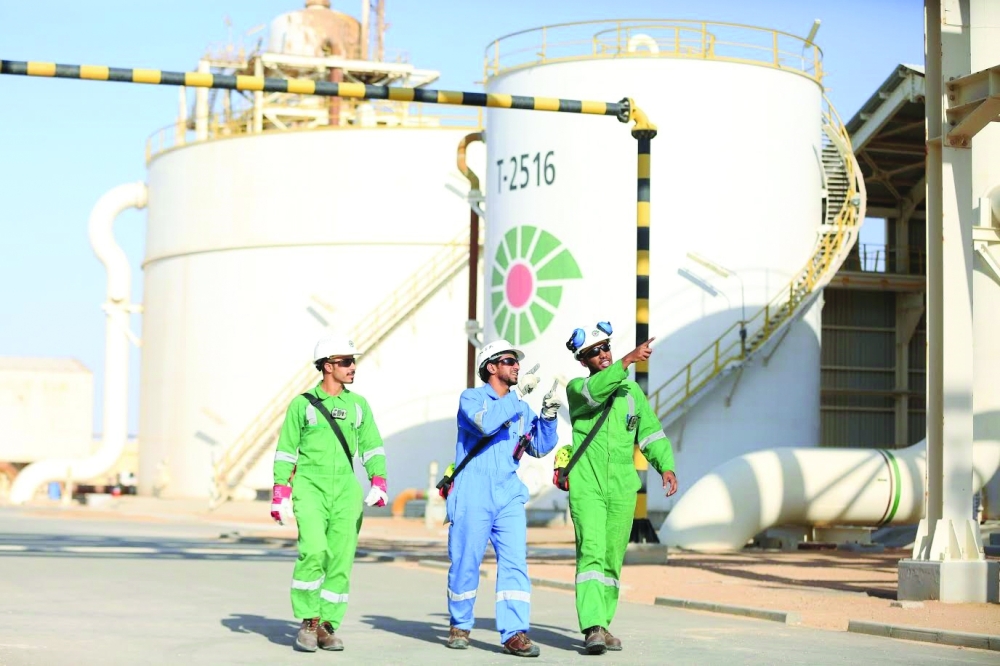Generation

PDO leads Oman’s energy transition with breakthrough net zero projects

Petroleum Development Oman (PDO), the largest producer of oil and gas in the Sultanate of Oman, is spearheading an ambitious and innovative transition toward a Net Zero future by 2050, underscoring its unwavering commitment to sustainability, energy efficiency, and climate responsibility. As published in the July edition of Wealth, a newsletter by the Ministry of Energy and Minerals, PDO’s strategic roadmap reflects a clear alignment with Oman Vision 2040 and global goals for decarbonisation, as it pushes ahead with a series of integrated projects that merge energy production with significant emissions reduction.
Among its most notable initiatives is a pioneering pilot project in the Dhulaima field, which marks a major milestone in carbon management and enhanced oil recovery (EOR). In a move that reflects a paradigm shift in the application of sustainable production technologies, PDO has successfully deployed carbon dioxide (CO₂) injection into the Upper Shu’aiba reservoir—an area previously considered inaccessible due to the limitations of conventional water injection and low rock permeability. The results were promising, with the CO₂ injection yielding a positive pressure response and no gas breakthrough, demonstrating both technical feasibility and reservoir stability. This pilot not only opens access to substantial untapped oil reserves but also supports emissions reduction through a carbon capture, utilisation and storage (CCUS) framework.
What sets the Dhulaima project apart is its rapid and efficient execution. Delivered within just 12 months, the initiative stands as a clear example of PDO’s capability to carry out complex engineering tasks with exceptional coordination and precision. The achievement also highlights the dedication and collaboration of multidisciplinary teams who delivered the project on schedule, with an exemplary safety record and zero health or environmental incidents—a hallmark of operational excellence in Oman’s energy sector.
In parallel with its work in CCUS and EOR, PDO is expanding its investments in renewable energy to reduce its carbon footprint across all operations. The company has set a target of generating 30 per cent of its operational energy requirements from renewable sources by 2026, a key stepping stone in its broader Net Zero strategy. Several large-scale solar projects are currently underway.
Among them are Riyah-1 and Riyah-2, which, with a combined capacity of 200 megawatts, represent the first projects of their kind globally to be undertaken by an oil and gas company. Once operational in the last quarter of 2026, they are expected to offset around 740,000 tonnes of carbon dioxide emissions annually.
Another major development is the North Concession photovoltaic solar project, also with a capacity of 100 megawatts and expected to be commissioned in the second quarter of 2026. This project alone will contribute to a reduction of more than 220,000 tonnes of emissions each year.
Meanwhile, PDO’s Amin photovoltaic solar power plant, which became operational in 2020, has already delivered a cumulative reduction of over 1.1 million tonnes of carbon dioxide emissions. The Miraah solar thermal steam generation project also continues to support clean steam supply for enhanced oil recovery, ranking among the world’s largest facilities of its kind.
Complementing these are smaller-scale but equally impactful initiatives such as the Dhiyaa project in Al Jazir, which supplies solar power to public buildings while promoting renewable energy awareness within local communities. At PDO’s Mina Al Fahal headquarters, the company has implemented a car park solar project, now in its third phase, which contributes to the reduction of approximately 1,800 tonnes of carbon dioxide equivalent emissions annually.
Equally critical to PDO’s environmental strategy is the sustainable management of produced water, which presents both operational challenges and emissions concerns due to its energy-intensive disposal requirements. PDO has adopted a nature-based solution through the Nimr Wetlands project, which uses reed beds to naturally purify water
With a treatment capacity of 175,000 cubic metres per day, this project not only avoids the release of 113,000 tonnes of carbon dioxide annually but also supports biodiversity, having created a desert habitat for over 140 species of birds and animals. Additionally, the Rima Water Treatment Plant, launched in 2022, employs innovative biological processes to treat around 40,000 cubic metres of water daily. This initiative has resulted in energy savings equivalent to 10 megawatts, translating into a further reduction of 48,000 tonnes of carbon dioxide emissions each year.












